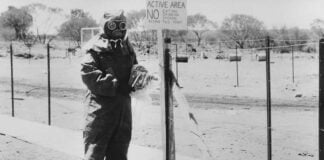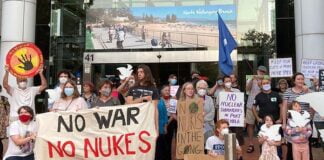THIS IS shaping up to be the bloodiest year on record since the US-led invasion of Afghanistan began in 2001.
The UN Assistance Mission in Afghanistan recorded a total of 1445 civilian casualties in the first eight months of 2008, an increase of 39 per cent on to the same period in 2007.
Pro-occupation forces are reported to have been responsible for 577 civilian deaths in the first eight months of 2008 during military operations, up from 477 during the same period last year.
Anti-occupation forces have been responsible for 800 deaths as resistance to the occupation increases.
Three hundred and ninety-five civilians were killed in air strikes over this period. This sharp rise in bombing deaths comes as US and NATO forces increase air strikes on the border region with Pakistan, and into Pakistan itself.
The growing civilian death toll is matched by growing troop deaths, with troop deaths in June exceeding those in Iraq.
As the death toll in Afghanistan increases, Kevin Rudd and Barack Obama talk about putting more troops on the ground to fight this supposedly “good war”.
Opposition to the war also continues to rise—with a new poll showing 56 per cent of Australians want troops out of Afghanistan—and pressure on governments to withdraw troops grows.
By Ernest Price





